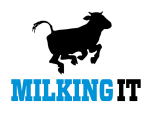OPINION: The New Zealand dairy sector attracts the best and brightest from around the world; aspirational farmers that want to make the highest quality products in the best environment.
Migration means continual renewal of our labour force, farm ownership and future leaders. Migration is crucial to our competitive advantage, and we should welcome and encourage their contribution.
The migrant communities are involved in all stages of production from on farm to processing, veterinarian practice, management and marketing. They are vital to our success.
In the recent Dairy Industry Awards, the success of Manoj Kumar, Sumit Kamboj and Christopher Vila reflect the power of immigration. As highly motivated farmers they show a passion for farming and a willingness to learn. Their adaptability will have long term positive impacts as not only successful farmers but also being inherently connected with our markets.
Unfortunately, the Minister of Agriculture has a directive to reduce the reliance on migrant abour. It’s part of his incoming minister brief. It is a short sighted vision that would lead to farms being unable to achieve their productive capacity, animal health issues, mental health issues and a failure to embrace the skills and attitudes of a new generation of leaders.
We first saw the reduction of labour supply in the horticulture sector. The restrictions on RSE workers put that sector into a panic as fruit harvests loomed. When the sector stories became a nationwide issue, the Government made token announcements to try and dampen down the issue.
The Government is under some illusion that New Zealanders will take these jobs up. The reality we know is somewhat different. Some will, of course, but many don’t have the desire to move to regional jobs and engage in this type of work. We need our migrant labour force to maintain our productive capacity.
We are now seeing the dairy industry being deprived of skilled dairy farm staff. The current immigration settings are specifically designed to reduce the migrant labour supply. When the inevitable industry pressure comes we get our token managed isolation announcements.
The Government uses the cover of COVID and poor productivity as excuses for reducing migration.
DairyNZ has undertaken some very helpful research in this area. They have identified a number of possible scenarios and the associated labour force challenges.
Essentially, we are looking at a 2,000 shortfall currently and this increases to between approximately 4,000 in the next year based on current immigration settings. This shows the seriousness of the labour supply issue facing the dairy industry
The real reasons this Government is against migration are two-fold. First, they want to redistribute the income on farm. It is explicitly in Minister O’Connor’s brief to achieve a redistribution of income. If they increase the costs of labour on farm then this will achieve their redistribution goals.
The other reason is that the Government wants to have the option of unionising the primary sector workforce. The recently announced Fair Pay Agreement legislation provides for industry-wide agreements, conditions and pay, where either: 1,000 employees, 10% of a sector, or a public interest test is met.
The 1,000 employees is hugely concerning as that equates to 5% of the New Zealand dairy workforce. We can see how this threshold could easily be met in the dairy sector.
The dairy sector also has a reliance on contracted labour supply. The Minister is also looking at including contracted agreements at a later date as well.
This would be devastating for employment relationships in the sector.
We must be looking at promoting migration.
David Bennett is National's agriculture spokesman.


















